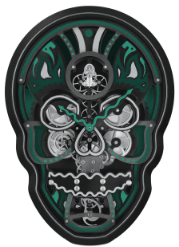Corniche Часы настольные от компании L'EPEE.

Как в Англии, и во Франции с середины 18-го века, постепенной эволюции морских хронометристы (хронометра) можно рассматривать как аспект в развитии портативных часы, предназначенные для путешествия. Первые достоверные перевозки часы были сделаны в Париже в начале 19-го века под эгидой Великой Авраам-Луи Бреге (1747-1823), наиболее вдохновенные всех часовщиков.
Перевозки часы также известен во Франции как “офицера " часы” и название основано на исторический анекдот. Говорят, что Наполеон, имея почти потеряли большую битву, потому что один из его офицеров было поздно, приказал своим военным начальникам, чтобы нести перевозки круглосуточно с ними во все времена. Заказы, размещенные с мастер-часовщики всегда включали ссылку “часы для офицера”, и это принесло название в обиходе.
This shape is the most popular of all times. The name “Corniche” comes from the elaborate moulding, or corniche, round the top. Since the middle of the 19th century, it has been produced in large quantities.
Both in England and in France from the middle of the 18th century, the gradual evolution of marine timekeepers (chronometers) could be regarded as a facet in the development of portable clocks designed for journeys. The first authentic carriage clock was made in Paris at the start of the 19th Century under the auspices of the great Abraham-Louis Breguet (1747-1823), the most inspired of all watchmakers.
Carriage clocks are also known in France as “Officer’s clocks” and the name is based on an historical anecdote. It is said that Napoleon, having almost lost a major battle because one of his officers was late, ordered his military chiefs to carry a carriage clock with them at all times. Orders placed with master clockmakers always included the reference “a clock for an officer” and this brought the name into common parlance.


